Website: www.cra-arc.gc.ca
TRAVEL EXPENSES
Travel expenses (at least 40 km)
Visit the website
If you had to travel at least 40 kilometres (one way) from your home to obtain medical services, you may be able to claim the public transportation expenses you paid (for example, taxis, bus, or train) as medical expenses. Where public transportation is not readily available, you may be able to claim vehicle expenses.
The cost of the public transportation expenses (for example, taxis, bus, or train) when a person is required to travel at least 40 kilometers (one way), but less than 80 km, from their home to get medical services.
To claim transportation and travel expenses, the following conditions must be met:
- substantially equivalent medical services were not available near your home
- you took a reasonably direct travelling route
- it is reasonable, under the circumstances, for you to travel to that place for those medical services
If a medical practitioner certifies in writing that you were incapable of travelling alone to obtain medical services, you can also claim the transportation and travel expenses of an attendant who accompanied you.
Travel expenses (at least 80 km)
Visit the website
The cost of the travel expenses, including accommodations, meals, and parking, when a person is required to travel at least 80 kilometers (one way) from their home to get medical services.
To claim transportation and travel expenses, the following conditions must be met:
- substantially equivalent medical services were not available near your home
- you took a reasonably direct travelling route
- it is reasonable, under the circumstances, for you to travel to that place for those medical services
If a medical practitioner certifies in writing that you were incapable of travelling alone to obtain medical services, you can also claim the transportation and travel expenses of an attendant who accompanied you.
For calculating meal and vehicle expenses, you can choose to use the detailed or simplified method. If you use the detailed method, you have to keep all receipts and records for your 12-month period.
You must keep receipts for all accommodation expenses and you must be able to show that the amount paid for accommodation is necessary because of the distance travelled and your medical condition. Claim the amount for accommodation as shown on your receipts.
Travel expenses (outside of Canada)
Visit the website
The cost of the transportation and travel expenses (for example, taxis, bus, or train etc.) and travel expenses, including accommodations, meals, and parking, when a person is required to travel 80 kilometers or more (one way) from their home to get medical services outside of Canada.
To determine if the treatment received outside of Canada is an eligible medical expense, see Medical services provided outside of Canada.
To claim transportation and travel expenses, the following conditions must be met:
- substantially equivalent medical services were not available near your home
- you took a reasonably direct travelling route
- it is reasonable, under the circumstances, for you to travel to that place for those medical services
If a medical practitioner certifies in writing that you were incapable of travelling alone to obtain medical services, you can also claim the transportation and travel expenses of an attendant who accompanied you.
For calculating meal and vehicle expenses, you can choose to use the detailed or simplified method. If you use the detailed method, you have to keep all receipts and records for your 12-months period.
You must keep receipts for all accommodation expenses and you must be able to show that the amount paid for accommodation is necessary because of the distance travelled and your medical condition. Claim the amount for accommodation as shown on your receipts.
Medical services provided outside Canada
Visit the website
If you travel outside Canada to get medical services, you can claim the amounts you paid to a medical practitioner and a public or licensed private hospital. A “medical practitioner” is an individual (such as a doctor or a nurse) who is authorized to practice according to the laws of the jurisdiction that the services are provided in. A “licensed private hospital” is a hospital licensed by the jurisdiction that it operates in.
